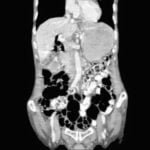Top Health Tips for Crohn’s Disease patients (UK Guidelines)
1. Understand your treatment plan and stick with it
– Work closely with your gastroenterologist to get a clear plan for inducing and maintaining remission. NICE guidelines emphasise using the right medications (anti-inflammatories, immunosuppressants, biologics) appropriately to reduce symptoms and prevent relapses.
– If you have surgery, follow recommendations post-operatively (for example, using medicines like azathioprine, metronidazole in certain cases) to reduce risk of disease return.
2. Diet and nutrition are key
– During a flare-up: eat small frequent meals and focus on high-energy, high-protein foods to help your body cope with inflammation and repair damage.
– Avoid foods that commonly trigger symptoms during flare-ups, such as very spicy or fatty foods, large amounts of caffeine, or alcohol.
– Once in remission: aim for a balanced diet including good protein sources; adequate calcium and vitamin D, particularly because medications and inflammation can reduce absorption.
3. Adjust fibre intake appropriately
– If you have strictures (narrowed sections of bowel) or are in flare, reduce insoluble fibre (e.g. wholegrain, raw vegetables, skins, seeds) to avoid risk of blockage. Use gentler, more digestible foods.
– When things are under control, gradually reintroduce fibre (especially soluble fibre) as tolerated to help with bowel health, gut bacteria, and regularity.
4. Stay well hydrated
– Fluids are especially important during flare-ups to compensate for fluid loss (e.g. through diarrhoea) and to help stools move more easily.
5. Lifestyle factors matter
– Smoking: If you smoke, quitting is one of the most important things you can do. Smoking worsens Crohn’s disease and increases likelihood of flares and complications.
– Stress / mental health: Stress (emotional, psychological) can trigger or worsen symptoms. Mindfulness, counselling, adequate sleep, social support are helpful.
– Physical activity: Gentle to moderate exercise when you’re feeling well supports general health, bone strength, mental wellbeing.
6. Monitoring and preventive care
– Be aware of risks of complications: bone thinning (osteopenia/osteoporosis) due to inflammation and steroid use, nutritional deficiencies (e.g. iron, B12, vitamin D) and growth issues (in children). Regular check-ups and appropriate tests are important.
– Keep up with cancer surveillance (colonoscopy etc.) where recommended, especially if disease has been active for many years.
7. Avoid self-diagnosis / self-medication
– Be cautious about avoiding entire food groups without guidance — unnecessary dietary restrictions can lead to malnutrition. Use a dietitian’s advice.
– Always consult healthcare professionals before stopping or altering your medications. Steroids and biologics need careful monitoring.
Join the mailing list!
Get the latest articles delivered right to your inbox!

